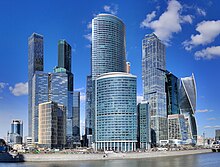Who is responsible for this educational meltdown? Teachers, parents, Theresa May? How far has the "british" propaganda and brainwashing of its youth already reached?
An English boy thinks Putin has made himself president for life.Criticism of how democracy is practiced is one thing, but shouldn't be conflated with constitutionally deliberately non-democratic countries.
Klevius suggests he reads Wikipedia (in this case*) instead of listening to propagandists. Be critical!:
* Wikipedia is arguably more anti-Russia than it is anti-UK/US. When Russia is accused of destabilizing other countries it may well be so. However, it can hardly be more than US/UK have done. US tools (shared with lilliput UK) have been so much more powerful. Russia is now not a main threat but rather a main excuse for selling influence, weapons etc. And always remember that the worst "country" on Earth, the islamofascist Saudi dictator family with its criminalization of Human Rights and its active support of islamic hate around the world, war crimes in Yemen etc., is a "close ally" to US/UK.
Russian Federation
In June 1991, Boris Yeltsin became the first directly elected President in Russian history when he was elected President of the Russian Soviet Federative Socialist Republic, which became the independent Russian Federation in December of that year. During and after the disintegration of the Soviet Union, wide-ranging reforms including privatization and market and trade liberalization were undertaken,[96] including radical changes along the lines of "shock therapy" as recommended by the United States and the International Monetary Fund.[97] All this resulted in a major economic crisis, characterized by a 50% decline in both GDP and industrial output between 1990 and 1995.[96][98]The privatization largely shifted control of enterprises from state agencies to individuals with inside connections in the government. Many of the newly rich moved billions in cash and assets outside of the country in an enormous capital flight.[99] The depression of the economy led to the collapse of social services; the birth rate plummeted while the death rate skyrocketed.[100] Millions plunged into poverty, from a level of 1.5% in the late Soviet era to 39–49% by mid-1993.[101] The 1990s saw extreme corruption and lawlessness, the rise of criminal gangs and violent crime.[102]
The 1990s were plagued by armed conflicts in the North Caucasus, both local ethnic skirmishes and separatist Islamist insurrections. From the time Chechen separatists declared independence in the early 1990s, an intermittent guerrilla war has been fought between the rebel groups and the Russian military. Terrorist attacks against civilians carried out by separatists, most notably the Moscow theater hostage crisis and Beslan school siege, caused hundreds of deaths and drew worldwide attention.
Russia took up the responsibility for settling the USSR's external debts, even though its population made up just half of the population of the USSR at the time of its dissolution.[103] High budget deficits caused the 1998 Russian financial crisis[104] and resulted in a further GDP decline.[96]
Governance
According to the Constitution of Russia, the country is a federation and semi-presidential republic, wherein the President is the head of state[121] and the Prime Minister is the head of government. The Russian Federation is fundamentally structured as a multi-party representative democracy, with the federal government composed of three branches:
- Legislative: The bicameral Federal Assembly of Russia, made up of the 450-member State Duma and the 166-member Federation Council, adopts federal law, declares war, approves treaties, has the power of the purse and the power of impeachment of the President.
- Executive: The President is the Supreme Commander-in-Chief of the Armed Forces, can veto legislative bills before they become law, and appoints the Government of Russia (Cabinet) and other officers, who administer and enforce federal laws and policies.
- Judiciary: The Constitutional Court, Supreme Court and lower federal courts, whose judges are appointed by the Federation Council on the recommendation of the President, interpret laws and can overturn laws they deem unconstitutional.
The president is elected by popular vote for a six-year term (eligible for a second term, but not for a third consecutive term).[122]
Ministries of the government are composed of the Premier and his
deputies, ministers, and selected other individuals; all are appointed
by the President on the recommendation of the Prime Minister (whereas
the appointment of the latter requires the consent of the State Duma).
Leading political parties in Russia include United Russia, the Communist Party, the Liberal Democratic Party, and A Just Russia.





No comments:
Post a Comment